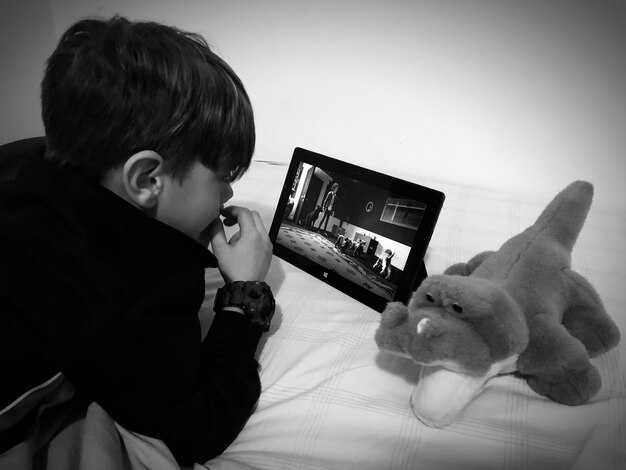Severe neglect in early life, when caregivers fail to attend to a child’s needs, often leaves a person emotionally porous. You might have built a successful adult life and set ambitious goals, yet still, like many people with complex PTSD, feel cut off from others even when they are objectively close to you. That old memory of being overlooked can shadow every interaction—romantic, platonic, professional, academic. If you don’t heal that wound, it can paradoxically keep you in relationships where you continue to be neglected. The good news is this is changeable. It can change. Today’s mail includes a note from a young man I’ll call James. He writes, “Dear fairy, I’m stuck in a dilemma with my close friends and don’t know whether I should try to mend these ties or just cut them loose.” I’ll mark things I want to return to, but first let’s follow James’ story.
He says he was always shy, which he attributes to being left alone a lot as a child. His father worked across the country and came home maybe once every two weeks if they were lucky. His mother worked as a diner cook and was out early and late with only a brief window at midday, so he was mostly in the care of his maternal grandparents. That arrangement wasn’t ideal: his grandfather was a construction worker who was away all day and drank heavily and could be harsh at night. Only his grandmother gave him some attention, though she worked as a seamstress and liked to unwind by watching television; she preferred not to be disturbed while sewing or watching her shows. This pattern of neglect continued until he was five, when a younger brother was born and the family moved into their own place. His mother paused her job for a while, and he hoped that would mean more attention—but the opposite happened. Now his complaints were viewed as an annoyance to her, and he grew resentful and emotionally distant. Another brother arrived a year later, and he was simply expected to obey and help. Those teenage years were brutal and culminated in a breakdown during his first year at university. He took time off, worked to support himself, and is now close to graduating, but the final stretch feels overwhelming—like Sisyphus endlessly pushing that boulder uphill. That strain also affected his few friendships. Many of his peers seemed as wounded as he had been at the beginning of his journey, and now that he’s made progress—however small—he’s frustrated by how resigned many are, shrugging that nothing can change and making no effort to get better when he suggests things that helped him. He worries they’re a bad influence who will keep him stuck in negative thinking, yet he’s reluctant to let them go because he genuinely cares for them; they’ve shared experiences and time together. Despite giving care to them—checking in weekly, for example—he feels uncared for in return. He gets torn because these friends overlap with the rest of his social circle; leaving them might sever ties to many people and leave him with few acquaintances who are much more distant. He feels trapped: being with them brings the pain of feeling ignored, but being alone brings the suffering of loneliness. In the past he withdrew, processed his pain alone, and then returned to his group, but he suspects that’s not a healthy pattern and fears the damage of prolonged isolation. Deep down, he says, he just doesn’t feel cared for—abandonment and neglect at the core. He’s grateful for help and asks for more guidance.
Here’s what’s going on. When two people share similar formative wounds, the one who’s started healing can offer perspective to the other, and James did a brave thing by reaching out. It’s common for people to have a crisis in late adolescence or early adulthood—college can bring on a breakdown because it’s the first time you’re away, facing life without the daily abuses you grew up with, yet still carrying the unhealed wound inside. The hopeful part is that what’s inside you—your reactions, patterns, and feelings—is much easier to change than the way others behaved in the past. Getting parents to transform rarely happens, so the healing work is mostly on you. James already shows good self-awareness: finishing college without steady emotional support takes grit, and he should be acknowledged for getting this far.
About his friends: he notices a difference between himself and them—he’s becoming aware that he needs healing, while many of his friends have compartmentalized their pain and aren’t ready to change. People who avoid addressing their trauma often pay for it later—compartmentalizing can collapse in someone’s late twenties or thirties when life demands more authenticity. It seems James formed friendships when he was at an earlier stage of development; as he grows, those connections no longer fit. Healing often means losing friends—you outgrow some people. Some relationships you’ll maintain out of affection; others will fall away because the changes you’re making irritate or unsettle them. If friends criticize you for seeking a better life, that clarity at least helps you see who aligns with your values. If they are just shallow or reckless, you can accept that you can’t carry them to your level. The most effective thing you can do to inspire others is to model change in front of them—people notice transformation, and that can invite them to change too. But you can’t force it.
Because you’ll be leaving school soon, that transition itself offers a chance to meet people who are a better fit. The loneliness you fear after shedding mismatched friends tends to be temporary: new, more compatible people usually arrive over time, and the sooner you step away from relationships that cause conflict, the sooner you’ll find better matches. If you stay because you’re compassionate and fond of those friends, that’s a valid choice and shows generosity; you don’t have to decide the same way for every friend. You might let beloved but stagnant friends remain in your life while distancing from people who actively create friction. Meanwhile, build other connections so you aren’t reliant on a single social circle.
Practical places to find healthier peers include 12-step or recovery groups, where many attendees are actively working on themselves and there’s a supportive culture of helping others. Other options include martial arts, team sports, theater groups, therapy groups, or structured communities tailored to recovery and growth. There are also membership programs and online communities where people take courses together, join book clubs, and form study groups; those can be a source of connection and learning if they resonate with you (there may be links in the resources you follow if you want to explore them). The main point is to seek environments where people are trying to improve—those are fertile places to form steady friendships.
A reason neglected children struggle to form reliable adult bonds is insecure attachment. You may rush into closeness or sexual intimacy and then feel alarmed when commitment and predictability don’t appear immediately. If you’re not clear about what you want—both in thought and in action—you’re unlikely to create fulfilling relationships. Shame often shows up as behaviors that push away perfectly fine people because your fear makes you act in ways that confuse partners. Learning to communicate clearly about your needs helps prevent this.
Now to another letter, from a woman I’ll call Clara. She writes, “Hi, crappy childhood fairy. I’m 22 and I’ve struggled with love and self-worth since I was 11.” She tells a painful story: her parents separated at six, her mom was emotionally unavailable, and her father was often absent and sometimes physically abusive—he later formed another family. When her mother started traveling with a boyfriend, Clara felt lonely despite being surrounded by relatives. Her grandfather, who had once been kind, began to treat her with contempt. An aunt accused her of manipulating her mother when she cried. Her older brother—eight years older—would sometimes hit her hard; she would cry and be blamed as the problem because of her high-pitched voice. Still, she admired him at times. At 11 she met an older boy—seven years her senior—and entered an abusive relationship involving classic manipulation that lasted three years. After she ended that relationship and told her mother, her mother blamed her, saying she’d broken trust and would have to earn it back—an accusation that left her isolated and hurt. Over the years she had many short, unhealthy relationships and “situationships” until six months ago she began seeing a man who shared her taste in melancholic music and photography. Two months into that connection they started dating. They spent time together frequently—movies, theater, picnics—and he sometimes stayed over while she worked on school papers.
Once she felt anxious after he canceled a meeting and they didn’t speak for a week; she worried he’d lost interest. Later, after seeing a movie, he asked whether she preferred monogamy or multiple partners; she said monogamy and felt reassured when he said the same. A few hours later she asked whether he would tell her if he met someone else; he said he would. When she turned the question back to him, he implied he’d tell her too. In another exchange, when she nervously asked whether they were “friends with benefits,” he answered ambiguously, “Sort of.” When she pressed whether he wanted a relationship, he said he could imagine one but that he feared commitment and couldn’t promise he could make himself feel more. Clara says she only wanted to know whether he had the will to stay and work together, but he couldn’t and wouldn’t offer that assurance. They had sex early in the dating, which for many people (especially those with attachment wounds) speeds bonding. Because she’d slept with him, she found herself attached and vulnerable while he kept things open. After a week of silence they met and he returned some shirts; she believed he might end things then, but he expressed a desire to continue seeing her. She felt ashamed and accused herself of being selfish, but the heart of her distress was a fear of rejection. When she tried to discuss her insecurities, she felt he shut down. At one point she told him she feared that if they kept going, she would fall harder and he would stay the same. He replied he wouldn’t force her or himself, and they parted. Later she reflected that she might have pushed him—testing him in a way that felt manipulative—hoping to provoke a declaration of commitment. The advisor encourages Clara to see that after just two months it’s reasonable for someone not to be ready to commit. When sex occurs early, many people—especially those with attachment trauma—bond quickly and then feel devastation if the partner does not reciprocate with a clear commitment. The sound advice is to go slower: learn about the person first, delay sexual intimacy if you can, and let words and consistent behaviors reveal their intentions over time. Dating should include observing reliability—do they follow through? Do they check in?—rather than pushing for answers by issuing ultimatums or dramatic tests. Such tests tend to create defensive responses and can push people away.
In Clara’s situation, it may be that she jumped the gun and escalated fearfully; she might apologize, explain her insecurities, and say she’s getting help so she can avoid pushing him away when she panics. There’s a recognized attachment style called disorganized attachment that can look like intense loving followed by sudden pushing away—this pattern is painful and confusing to both parties and takes patience and steady therapy to change. If the relationship matters, a reset that includes pacing the emotional intimacy and perhaps avoiding sexual contact for a while so you don’t bond prematurely could help. If he’s not willing to slowly build a relationship after that, it may be a sign the fit isn’t right. As a general rule, consider dating someone for several months—three to six—without escalating too fast, so you can learn whether they will offer the consistency and care you need. When sharing your feelings, be honest but try not to ambush someone with emotional pressure; healing helps you stop overwhelming others with past pain spilling into present situations.
Another letter comes from a woman I’ll call Be. She describes growing up with a mother who had untreated borderline personality disorder and depression, a brother with severe Tourette’s and learning and anger issues, and a father who drove trucks and was mostly away. The home was loud, with frequent fights and occasional violence. Her mother loved her but became codependent, treating her as a golden child while also being emotionally unavailable because of her own struggles and the demands of the brother. Be was often expected to forgive and accept whatever the brother did, and she was held to a higher standard—if she misstepped she faced blowups, while the brother’s behavior was excused. From this she learned not to rock the boat and became a people-pleaser with anxious attachment, idolizing others and minimizing their faults, along with identity uncertainties. At 20 she moved abroad for love and spent nearly five years there. When that relationship collapsed, she returned home on short notice to find her mother in a deep depression and her father’s hoarding making the childhood home difficult to live in. She blamed herself for leaving and felt she’d abandoned her parents. To escape that pain she began traveling with emotionally unhealthy companions, tolerating mistreatment in exchange for the travel experiences. On a trip she met a man from Texas who was upfront about his damage—his history of addiction, suicidal ideation, and a string of failed relationships—and said he didn’t want a relationship. She saw that honesty as honesty of the good kind, not as a huge red flag, and they began an intense, on-again off-again connection full of travel, long phone calls, and a rhythm of periods where he’d be attentive and then pull away. After an abrupt breakup while on a public trip, she dissociated to survive and completed the holiday with him as if nothing had changed. Later, during the pandemic, he reappeared and they spent hours daily on the phone as “quarantine buddies.” Even while he repeatedly told her he didn’t know what the future held, she clung to the hope he might change. Over time he pulled away and she became increasingly anxious and obsessive, turning their conversations into therapy sessions about his depression. She often felt she had to walk on eggshells to avoid losing contact, and she found herself making trips to reignite their brief spells of closeness. She even supported him through a crisis where he discussed ending his life—an experience she found traumatic. She rightly sensed a pattern of intermittent reinforcement: periods of affection followed by distance that left her desperate to chase the connection. She worried that if she pulled back completely, he might harm himself, and she felt responsible for his well-being because he claimed he had no one else.
The honest appraisal here is that you are not equipped to carry someone else’s mental health crises as a romantic partner. If a person is that unstable, they need professional care and a firm support system beyond a dating partner. While compassion is natural, staying entangled with someone who repeatedly withdraws and threatens self-harm places an enormous emotional burden on you and prevents you from finding healthier relationships. It’s understandable to fear being the cause of their actions, but you are not responsible for another person’s choices or for fixing them. In recovery language: you didn’t cause it, you can’t control it, and you can’t cure it. You need to protect your own wellbeing and seek support for your own healing—12-step groups, codependency groups (CoDA), Adult Children of Alcoholics (ACoA), Al-Anon for friends and family of addicts, or other therapy groups can offer fellowship and concrete help. These communities provide people who understand these dynamics and can support you in forming new boundaries and healthier connections. You deserve better than a repeatedly vanishing partner who drags you into crisis; you deserve real friends and stable love. Stop contact with people who repeatedly create toxic cycles in your life and invest in communities and professional help that will foster your recovery.
Finally, a letter from Lena, age 46. She fell deeply in love five years ago in a spiritual, intense way, and after four years the person left her—by a text message, with no explanation. Almost a year later she still grieves as if it were yesterday, feeling both physical and emotional pain. Lena wanted children and marriage and wonders why she never met the right partner; the casual question from others about why she’s single stings. Her parents stayed married, but she discovered in the last few years her mother is emotionally unstable and reactive—always busy, often turning away, never asking “How are you?” Her father was away with the army for the first years of her life and both parents kept busy working, so Lena felt unseen and unheard at school and at home. In reaction she became the opposite of her mother—kind, caring, soft-spoken, creative—yet often timid and hesitant to be bold. In her long relationship she noticed mutual withdrawal: her ex would sometimes disappear for weeks and exclude her from some social events; in response she would shut down, switch off her phone, and take solitary trips to the ocean to recover. She worries that she was part of the problem—maybe she appeared neglectful or distant—but she’s also sensitive and easily overwhelmed in crowds, which makes social life and dating difficult. She has no local friends now—she lives in the countryside, works online, has traveled and made friends around the world, but returned home years ago and doesn’t have a social network nearby. She’s worried that when she gets triggered she freezes or withdraws and that this pattern will keep her from forming the loving, committed partnership she longs for.
To Lena: you’ve described your history beautifully and honestly, which gives a clear picture of where you are. You may be idealizing the ex-partner and the relationship, especially if, as you say, he pulled away and didn’t include you in important parts of his life. That’s a significant clue: someone who loves and commits to you tends to integrate you into their social world and make space for you; exclusion and unexplained disappearances are red flags. Your mother’s aloofness and your childhood experiences explain why you learned to withdraw—and living a life that avoids social stimulation to prevent overwhelm can become a self-perpetuating barrier to forming new relationships. You were robbed of certain emotional experiences as a child, but you also gained strengths—an appreciation for nature, sensitivity, and capacity for care. Those are gifts you can build on.
What might help is gradually re-entering the social world at a pace you can tolerate. Consider resources that help you reconnect—courses or programs that offer daily small steps toward making contact, small social practices, or guided boot camps designed to rebuild social confidence. Clarify what you want in a partner and make non-negotiables explicit early on: if you need someone who is eager to be with you and willing to show it, make that part of your selection criteria. That prevents investing time in people who are ambivalent and sets boundaries that protect your heart. If you tend to withdraw when feeling jealous or hurt, practice communicating needs before you disappear—short, clear messages that let a partner know what’s going on without shutting down completely. Therapy, peer support groups, and structured programs can all help you develop these communication habits.
Across all these stories, the through-line is that neglect and chaotic caregiving in childhood create attachment wounds that influence adult friendships and romantic relationships. Healing those wounds involves naming them, seeking supportive communities, getting professional help when needed, learning to slow down in dating, setting boundaries, and connecting with people who are also doing the work. Though losing friends or partners during your healing process can be painful and may create temporary loneliness, it’s part of growing toward relationships that truly suit the person you’re becoming. With steady work and the right supports, you can form friendships and partnerships that reflect the care you deserved as a child and that you now deserve as an adult.


 La negligencia infantil te hace "jugar a ser pequeño" en las relaciones (compilación de 4 videos)">
La negligencia infantil te hace "jugar a ser pequeño" en las relaciones (compilación de 4 videos)">

 The ONLY way to beat a Narcissist at their own game || Red flags and Green Flags!">
The ONLY way to beat a Narcissist at their own game || Red flags and Green Flags!">
 How to Apologize the Right way">
How to Apologize the Right way">
 Una advertencia para los complacientes y altruistas.">
Una advertencia para los complacientes y altruistas.">
 How Avoidants Test If You’re Still Available After Rejecting You">
How Avoidants Test If You’re Still Available After Rejecting You">
 ">
">
 LA VERDAD Mujeres No Le Dicen a los Hombres.">
LA VERDAD Mujeres No Le Dicen a los Hombres.">
 El mejor predictor de la salud de tu relación es.">
El mejor predictor de la salud de tu relación es.">
 Cómo Desconectar Cuando Tus Sentimientos Se Exceden">
Cómo Desconectar Cuando Tus Sentimientos Se Exceden">
 Cuando te pones en contacto con un ex, ten cuidado de no estar HACIENDO ESTO">
Cuando te pones en contacto con un ex, ten cuidado de no estar HACIENDO ESTO">
 La incómoda verdad sobre por qué tantas mujeres se sienten solas">
La incómoda verdad sobre por qué tantas mujeres se sienten solas">